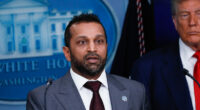Share this @internewscast.com

Nepal’s action against social media companies, which resulted in protests and the police killing at least 19 people, contributes to a global trend where internet freedoms are declining as democracies attempt to restrict online speech.
The government of Nepal recently announced a ban on several social media platforms, including Facebook, X, and YouTube, due to the companies’ non-compliance with a registration mandate. The ban was revoked on Tuesday, following the deadly protests that transpired.
The situation in Nepal exemplifies a broader tactic of narrative control, according to Aditya Vashistha, an assistant professor at Cornell University. He pointed out that similar actions have occurred in neighboring countries like India, Pakistan, and Bangladesh. This, he indicated, is part of a well-established strategy to manage social media narratives.
Not just Nepal
Nepal’s government, like those of its neighbors, has been urging the platforms to appoint representatives in the country. Officials advocate for legislation to supervise social media and to make both users and operators accountable for their content. However, these measures are criticized as tools for censorship and as a means to penalize dissenters who protest online.
“Governments absolutely have a valid interest in regulating social media platforms. These are integral to daily life and business. It’s reasonable for authorities to want to set rules,” stated Kian Vesteinsson, a senior research analyst at Freedom House.
“Yet, in Nepal, complete bans imposed as a way to enforce regulations on social media result in excessively harmful consequences. These actions in Nepal disconnected tens of millions of people from platforms they rely on for self-expression, conducting business, communicating with family, accessing education, and obtaining healthcare information.”
It’s not just Nepal. Freedom House has found that global internet freedom has declined for the 14th consecutive year in 2024, as governments crack down on dissent and people face arrest for expressing political, social or religious views online. While China consistently tops the list as the “world’s worst environment” for internet freedom, last year Myanmar shared this designation as well. The organization did not track Nepal.
India passed a telecommunications law in 2023 that gave its government “broad powers to restrict online communications and intercept communications,” according to Freedom House. Three years earlier, a sweeping internet law put digital platforms like Facebook under direct government oversight. Officials say the rules are needed to quell misinformation and hate speech and to give users more power to flag objectionable content. But critics cautioned it would lead to censorship in a country where digital freedoms have already been shrinking.
In January, meanwhile, Pakistan’s lower house of parliament passed a bill that gives the government sweeping controls on social media, including sending users to prison for spreading disinformation.
Online freedom and democracy
Calling internet freedom a “pillar of modern democracy,” Freedom House said a healthy 21st-century democracy cannot function without a trustworthy online environment, where people can access information and express themselves freely.
Increasingly, though, governments are putting up roadblocks.
Often, regulations are in the name of child safety, cyber crime or fraud, Vesteinsson said, “but unfortunately, a lot of this regulation comes hand in hand with restrictive measures.”
In the Nepali law, for instance, “the same provision of this law, directs social media platforms to restrict content relating to child trafficking and human trafficking and labor, a really important issue,” he added. “Two bullet points above that, it orders platforms to restrict people from posting anonymously.”
The Committee to Protect Journalists said Monday that the protests “underscore the widespread concerns over Nepal’s ban on social media and the pressing need for the government to drop its order. Such a sweeping ban not only restricts freedom of expression, it also severely hinders journalists’ work and the public’s right to know.”
Can VPNs help?
The crackdown appears to have spurred a surge in use of virtual private networks, or VPNs, according to Proton, which provides encrypted services. Signups for Proton’s VPN service in Nepal have jumped by 8,000% since Sept. 3, according to data the company posted online. A VPN is a service that allows users to mask their location in order to circumvent censorship or geography-based online viewing restrictions.
But experts caution that VPNs are not an end-all solution to government internet blocks. They can be expensive and out of reach for many people, Vashistha noted, and they can be slow and lead to lower-quality experiences when people try to access blocked social platforms.
Google, Meta, X and TikTok (which registered and continues to operate) didn’t respond to requests for comment.
Vesteinsson said companies can take important steps to safeguard privacy of their users — particularly human rights defenders and activists who might be a specific target for government repression in their countries.
“It’s enormously important for social media platforms to be responsible to their users in that way,” he said.
___
Copyright 2025 The Associated Press. All rights reserved. This material may not be published, broadcast, rewritten or redistributed without permission.












